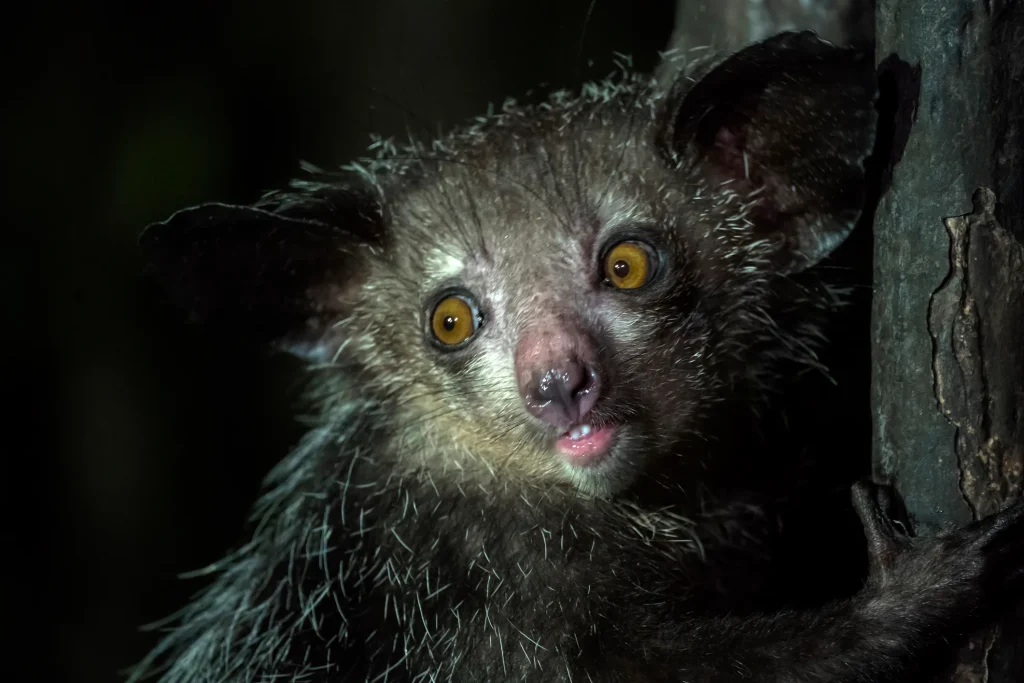How Long Do Aye-Aye Live? These questions have been asked by a lot of wildlife enthusiasts and researchers alike. The Aye-Aye, a primitive animal from Madagascar possesses some unique attributes. Let’s explore and find out the life span of an Aye-Aye.

The Animal Called Aye-Aye
This primate is unique specie that is native to the rainforests of Madagascar and has captured the interests of wildlife lovers and researchers over the years. It has unique physical features, special feeding habit; arboreal and nocturnal.
How Long Do Aye-Aye Live
But what is the life span of an Aye-Aye and what are the factors that can influence its lifespan? Let’s explore its life expectancy below.
In the forest, the ayes-ayes face a lot of challenges that can affect their lifespan. The threats include Habitat loss, Predation and Competition with other species or animals.
The main factor that affects their life span is their reproductive and breeding behavior. They are known to have a slow reproductive rate, with the female aye-aye giving birth to one offspring every two to three years.
The Aye-Ayes gestation period is about 160 days and this makes the aye-aye habitat vulnerable to extinction. In the wild, their lifespan is estimated at 20-23 years.
ALSO READ:
- Is Aye-Aye Harmless?
- How Big Can Aye-Ayes Get?
- Do Aye-Ayes Eat Meat?
- Do Aye-Ayes Have Good Eyesight?
When captured, the aye-ayes live longer than those in the wild. But with proper care at the wildlife conservation centers like regular access to food and veterinary care, they can live up to 25 years or even more. Some even get to reach their early 30s in captivity.
In captivity, if the aye-ayes are given balanced diet that replicates their natural food sources, they can exceed their life span.
Genetics also influences the lifespan of an Aye-Aye. Like humans, their genetics plays a great role in their life span.

